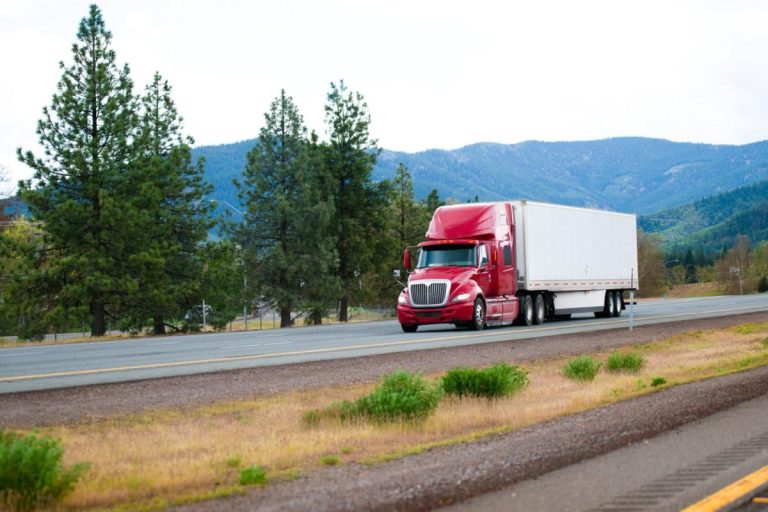California recently took another big leap to help reduce global warming pollution by moving forward with a ban on new registrations of diesel-powered trucks at its ports.
The ban was scheduled to take effect on January 1, but as of early January, the California Air Resources Board was delaying implementation of the ban pending approval from the federal Environmental Protection Agency, according to the New York Times. The EPA is actively reviewing the matter and will receive written public comments through February 27, Reuters reported.
This regulation is part of a plan to create a completely carbon-neutral trucking sector by 2035.
This is good news for many Californians, because it will improve air quality in communities with heavy truck traffic. Diesel pollution is linked to serious health conditions such as asthma and respiratory disease and can worsen existing heart and lung diseases.
For example, Nancy Gonzalez, a resident of a Los Angeles neighborhood that frequently sees heavy traffic, told the New York Times that she suffers from sinus problems and that her son's eyes started watering a few years ago.
The new truck base at the ports is also a win for the planet because the shipping sector — planes, trains, cargo ships, trucks and other vehicles used to move goods around the world — accounts for about 8% of the pollution that drives global warming. According to the MIT Climate Institute, which says that number could double by 2050.
California is not alone in its quest to clean up its act, as other states have taken similar measures. For example, New Jersey recently announced a plan to ban the sale of gas-powered cars by 2035. Climate advocates say this will help put an additional 90,000 electric cars on the road by 2030.
In addition, there is some positive movement in water transportation. US technology company Boundary Layer is developing watercraft powered by hydrogen that produce no carbon pollution. These ships will be able to move goods at the same speed as air freight door-to-door, and can do so for 50% of the cost, according to the company.
California's new policy is not without challenges.
For example, Harbor Pride Logistics acquired 14 electric trucks in 2023 to comply with new regulations. The trucks were recalled last August, leaving the company in a difficult situation.
“It's brand new technology, first generation, so I knew things would happen, but I didn't expect to get all 14 of my trucks back,” CEO Nery Diaz told the New York Times. . “It's a huge impact on my operations.”
Additionally, electric trucks can cost more than $400,000 and cannot yet travel long distances without long stops to charge, according to the Times.
The state is trying to make the transition smoother by offering truck purchase grants of up to $288,000 per vehicle. This is not unlike the state's rebate program that gave residents up to $7,500 to purchase electric, hybrid and fuel cell vehicles. In late 2023, the program moved to serve low-income individuals.
“It's an additional headache and additional costs,” Rudy Diaz, president of Hight Logistics, told the New York Times. “But consumers are demanding more sustainable products, and they are willing to pay the price.”
Join our free newsletter Great news And Actionable information This makes it easy help yourself While helping the planet.

